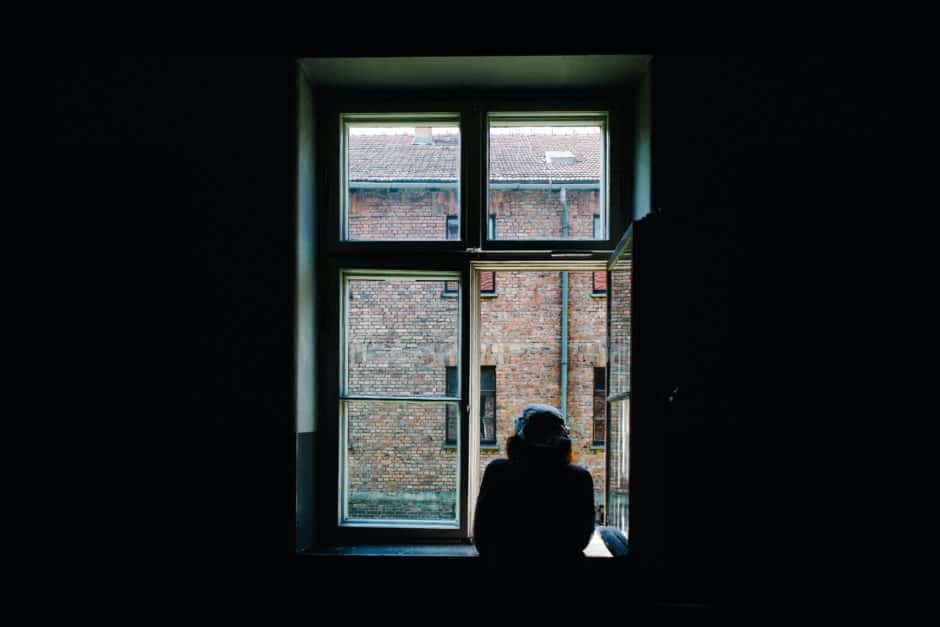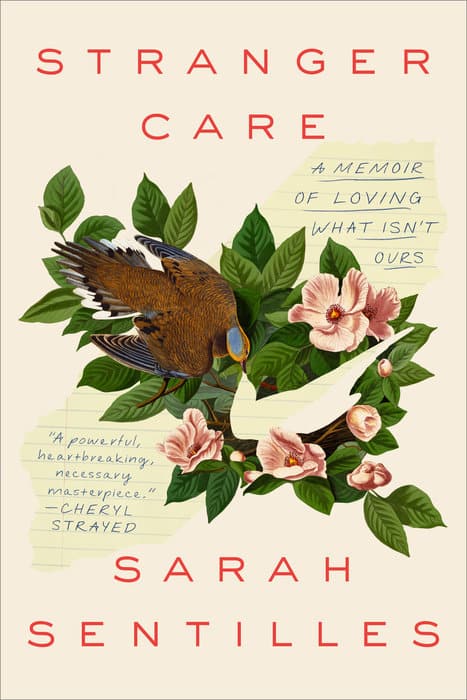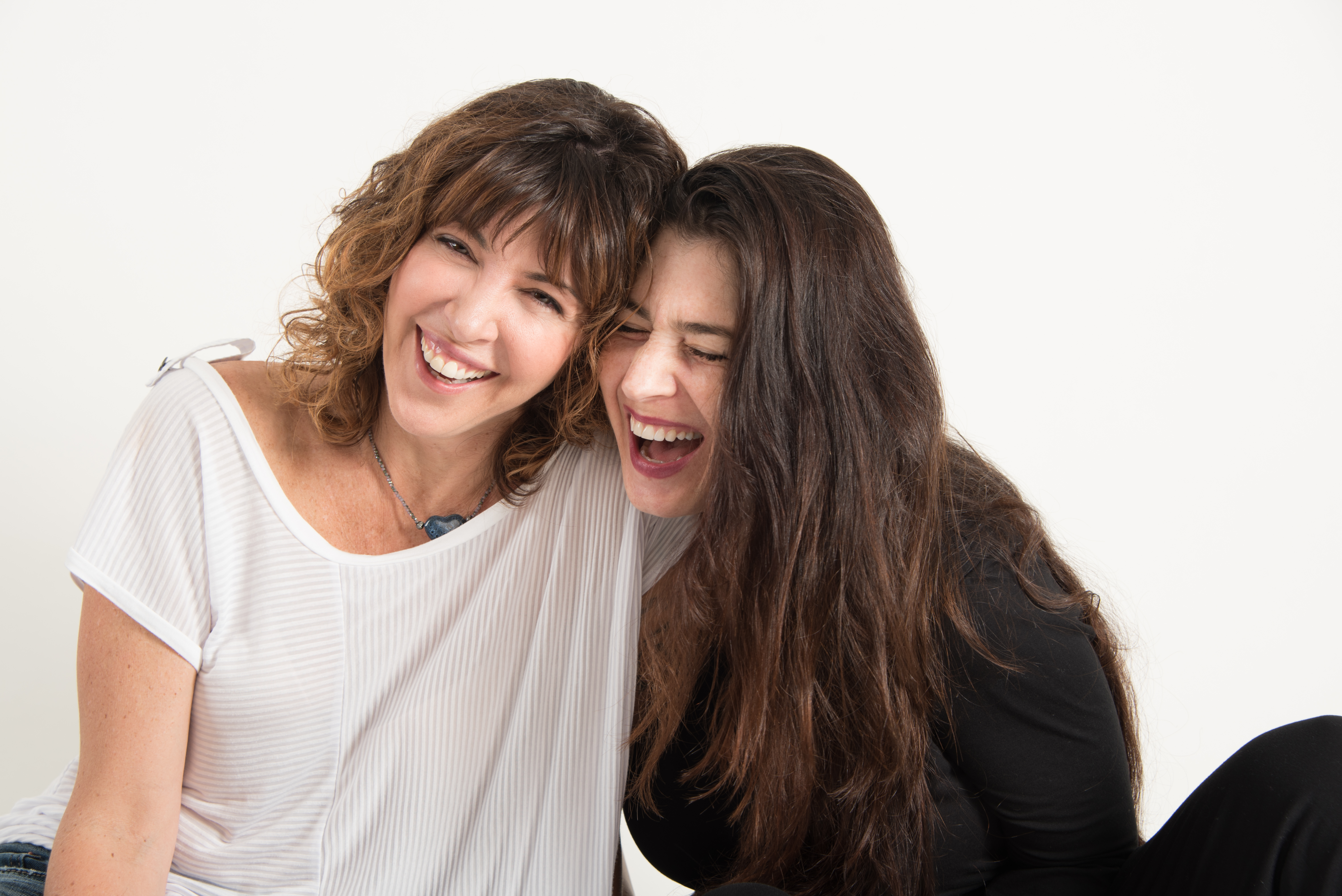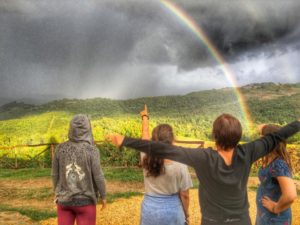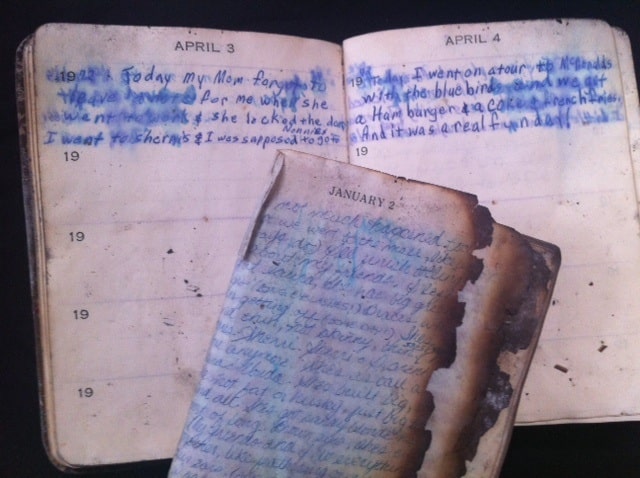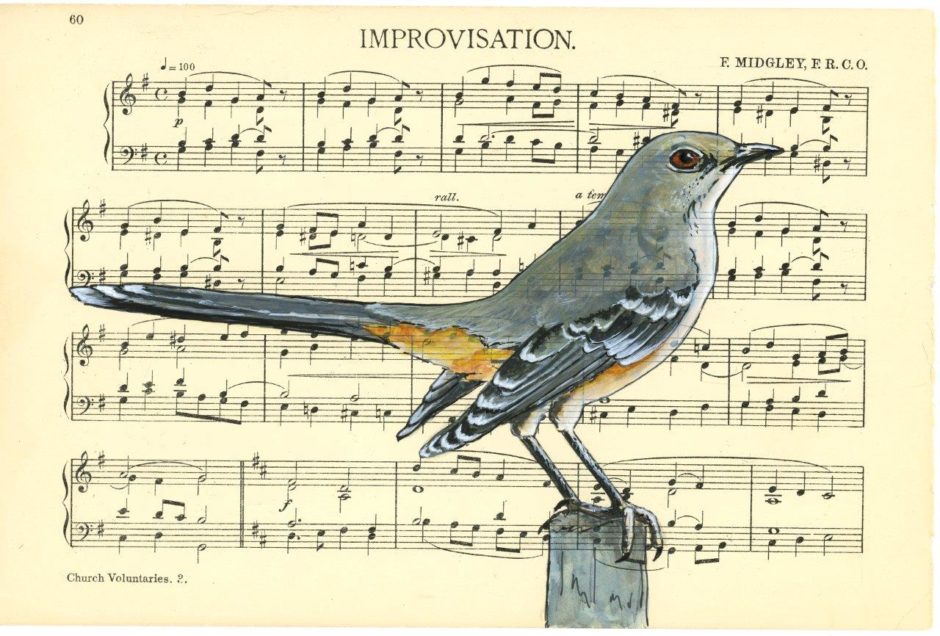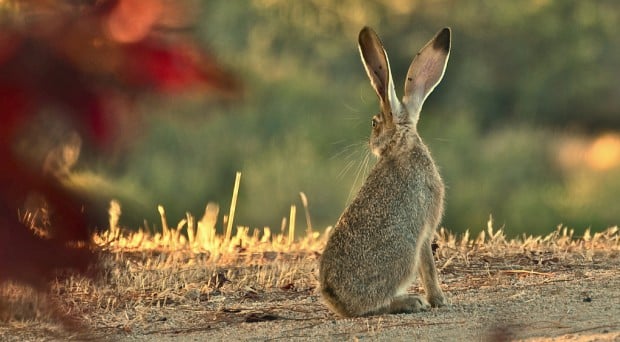By Karen Mandell
Before she left us for North Carolina, Marie told us that the wife moving in was recovering from a stroke. Great, Dalia said after Marie went back inside to her packing, she’ll die here. We gasped, shocked, but I knew it was inevitable, especially when I met Cath some weeks later.
George, the husband, said they’d come from California. Then why come to Massachusetts, I asked him, the early November day already dreary. I have three sons, he said, one in California, one in Missouri, and one here. I waited for him to go on. And my only grandkid is in Reading. A ten-year-old girl. Of course, I said. One town over. We were mostly like that in this complex—downsized middle-agers with young family nearby. They were a few single women here, five of them. One couple got divorced soon after they moved in, right before my time. The others had never married.
I met Cath once, though the signs of her presence were evident—a ramp from the garage to the back door, guys taking measurements for a ramp to the front door. When I met her, they’d just driven into the garage. No packages, so I supposed they’d come from a doctor’s appointment or a drive around the neighborhood. We were still at that stage—exploring the almost rural North Shore with its country roads and small ponds. Practically a different state from Boston and its suburban environs, its diverse restaurants and neighborhoods, its strip malls on Route 9 and Bloomindales-esque shopping centers.
I figured that since their garage door was still open, I’d run over and introduce myself. Cath, still unsteady after her illness, was arm and arm with her husband. Her hair was rough and her coat was half buttoned and studded with leaf bits. I felt sorry for her, a surging liquidy feeling, and more generally sorry for George. This hapless woman needed more care than her husband was able to give her. I walked to the back of the garage with them, almost to the ramp. “I need the ramp because of my eyes,” she said, and I looked at her gray eyes behind the smudged glasses.
“You need the ramp for more than that,” George said. I knew he wanted me to go, and I did. I did feel like voyeur.
It was a quiet complex, and it was a couple of weeks before I talked to his next-door neighbor, Gloria. I prodded her a little about the new neighbors. “She fell down a couple of times,” Gloria said. “She’s at a nursing home now.” She didn’t know when she’d be coming home. In the following days, I saw his son, daughter-in-law, and granddaughter pull into the driveway and go inside. After the next couple visits, they brought their new puppy, a French bulldog that looked stuffed into its fur. I liked the fact that they had a small periwinkle blue car, a little Datsun, which belied the image of suburban family so prevalent in Newton, our old town.
When our daughter Willow drove over (from Wakefield, the town next-door—the reason we’d moved thirty miles north) I told her about Cath and the nursing home. Seven-year-old Hailey was making snow angels on our little strip of lawn, and I didn’t think she was listening. Well, I hoped she wasn’t listening because I wanted to talk to Willow about our neighbors. But of course she was. “What’s a stroke,” she said. “Like a stroke of luck?” Hailey had a good vocabulary and was very nosy. I liked to think I was exactly like her as a child.
“It’s a sickness,” I said. She’s resting and getting better.” Hailey looked at me. I could tell she was assessing her own health. “Could I get it?” she said, fear scrunching up her nose.
“Of course not,” Willow said. “It’s for old people.”
“But then will Bubbie get it or Papi?”
“No, no. They’re not that old and it’s not that common.”
“Let’s go across the bridge to the wetlands,” I said. What a grandma I was. My mother would never talk about others’ illnesses in front of the kids. And cancer was never cancer but C. And then my own grandma said kaynahora, meaning keep the evil eye away. “Maybe we’ll see a coyote.” I said.
“Will they bite,” Hailey said, excited.
“Only if they’re worried about their children,” I said. At least they were good mothers.
A few days later Gloria sat outside on her front step, enjoying the early winter sun. A good chance to ask her about Cath. “She died,” Gloria said, whispering though no one else was outside.
“I had no idea,” I said. “I haven’t seen George.” Not that I knew him well enough to ask him anything. A few of his activities were obvious just from looking out the dining room window: golf, food shopping of course, a walk through the complex, bringing back the mail from the mailboxes stacked at the front of the complex. He liked to wash his new car, having trading in his small Lexus for a larger NX. Insurance money, I decided. In fact, I’d said a few words to him the other day, you’ve got a new car. Yes, he answered, smiling.
And then the workmen started coming, dragging large boxes out of their trucks. New appliances, fridge, stove, dishwasher, washing machine, dryer. Naturally all the condos had come with appliances, moderately priced, acceptable brands. But these new ones were high end, European, six burner stovetops, Viking and Bosch. I could tell by the cardboard containers, broken down and tied up on trash day. I talked to one of the workers. “He’s doing some work,” I said. Casual. A whole new kitchen, he told me. I was glad to get that much out of him. I would have loved to see inside, but that was impossible. I almost never saw him. It was cold, people were inside, socializing was practically nil.
Next to his driveway there was a patch of grass, then a two-car parking area meant for guests. A fairly new Subaru Forester began parking there, nicely washed, clean and spiffy inside. Sometimes the car was gone, but it always came back, though I never saw its driver. Someone’s guest. Not that that black car was the only outlier—adult children of the condo owners came and went with their children. No one under fifty-five was entitled to live here, but with jobs lost, rental prices high, parents took in their children and grandkids and dogs. Like the other condos, our dining room windows looked out onto the street, if you could call it that, more like a paved pathway. The developers hadn’t bothered to name the roads, so only our houses had names—or more accurately, numbers. No Mount Isabel or Clotworthy House here—just 43 (us) or 31 (George the widower across the street).
Sitting at the dining room table, reading The Globe, I figured out who owned what cars here. Because the mailboxes were at the front entrance of the development, I watched the residents walk down and back and take strolls with their visiting friends. Once when we were sitting down to Morty’s veal stew, he said, “You don’t have to get up every time someone walks by.” I hadn’t realized my behavior was so obvious, but there I was peering out between the slats of the closed blinds.
“I was just checking the weather,” I lied. It wasn’t an outright lie because I do check the weather every time I look outside. When I was a teacher, one of my students told me I was a weather person. I thought that was a wonderful compliment, though I’d been mad at him earlier for playing with a koosh pencil topper in class. I’d taken it from him and put it in my desk. When he asked for it a few days later I said no. I liked it myself and wanted it. Some years later I heard he’d gotten engaged but committed suicide. I put the stringy ball on a top shelf and left it. I found it recently and briefly considered giving it to my granddaughter, but it had too many bad connotations. Did I prod him to committing suicide, like the last tiny breeze that makes the piggy’s straw house fall down? Like chaos theory, the straw that broke the camel’s back.
“Don’t act like I have nothing else to do,” I said. I opened my mouth to list them, all my activities, but Morty counted them off for me.
“Your reading, your newspapers, your piano playing.” He held up his hand so I wouldn’t stop him, “Poetry writing, your houseplants.”
“And I’m thinking of taking up painting.” Morty is a painter plus he does his leadership training from home. He nodded showing his potential interest.
“Actually,” I said, “it’s paint by numbers but it’s for adults. I saw it on Etsy. Lots of colors and tiny spaces to work on. Copies of the great masters.” As soon as I said this, I knew I couldn’t possibly do it. Thank goodness I hadn’t ordered anything yet. I need something to suck me in, a novel by Elisabeth Bowen or Virginia Woolf, where nothing really happens and you don’t have to follow a plot. Although I do love mysteries where the bodies pile up but the gore quotient is low.
Morty cut a couple of pieces of the good sourdough you can only get in Brookline, thirty miles away. I know that because that’s how far we moved to get closer to the grandkids. After twenty years in the old house. “I wonder how George across the street is doing. Do you ever see him to talk to?”
“When he’s been out washing his car now and then. Not since it’s got cold.”
“Maybe he’s joined a church and has friends there,” I suggested.
“Churches aren’t open yet. Are they? He gets the paper. That must take some time. You have noticed that the paper’s getting skimpier and skimpier.”
“I don’t like being aware of that,” I said.
“Anyway, I’m sure he’ll be fine. As much as the rest of us. His granddaughter and the puppy must lift his spirits.”
When Willow called, I asked her if I was having a delayed reaction to Sapphie. She’d died at sixteen last summer. I didn’t cry—I’m not a crier unless there’s a strand of tenderness in a book or some heart-tugging in a movie—but I missed her and her constant padding after me.
“You’ll take care of our dog,” Willow reminded me. Their Tibetan terrier puppy would hopefully be born in the summer—if the mother got pregnant. The breeder had tried once. They didn’t know yet if it took. Nothing was easy.
I started using the computer in the dining room. The light was better than the loft upstairs, in my nook near the laundry room. It still got dark early, so I could watch the sunset up close—the windows down here faced southwest. Upstairs, they faced north, so the light didn’t change much all day. In the interludes between lines
We buck each other up, the morning and I.
I throw open the window and admire her fog twist…
And the next one:
Loading the dryer, I think chocolate,
Chocolate waiting in the heart shaped red box
Luck winds around me like a static filled sheet, an electric kiss…
I realized that it was one o’clock, lunchtime. The Subaru was parked in the guest space across the street, and I put on my coat, hat, and scarf to go pick up the mail, a constitutional before lunch. A bunch of circulars, it turned out, and the Lynnfield weekly paper, read mostly for the prices of recent house sales. I glanced into the Forester on the way back, surreptitiously because it did make me feel like I was snooping around. Someone could be looking at me from their window, George being the first to come to mind. I had enough time to take in the lack of magazines and books and reusable bags on the back seat, the spotless floor mats, the unstained and empty cup holders. The owner was someone neat and tidy with a new car like George. Or maybe George had helped her do a through cleaning. Some people found cleaning cars relaxing—smaller than a house, smaller than a kitchen, manageable. Maybe George had a girlfriend, I thought wildly, who had a car as well cared for as his. This car.
A romance on our street. Why not? A middle-aged man, trim, energetic. How much time could golf take. A lot, obviously, when I considered the people my uncle played with when I visited the New Jersey branch of the family as a child. My father wouldn’t touch the sport, having determined it was the refuge of the overweight, tightly belted white pants wearing bourgeoise. Plus, he’d never seen golf growing up in Poland, where soccer was the only activity that mattered. Though Morty’s parents had both played, and neither one was overweight nor particularly bourgeoise.
By the time I walked up the five steps to my front door, the questions had piled up like vehicles in a traffic jam on 128. Where would George have met her? Not only was he new in town, but he’d been a widower for just a few months. Actually, when you’re new in town is when you do make friends, making the effort to replace the network left back home. And the company of his late wife. They’d come to Boston to watch their granddaughter grow, and her being the only grandchild among his three sons made it likely that he’d go to a bunch of her activities. Dance recitals, basketball games, maybe even puppy training classes. Endless opportunities.
Inside, I shoved aside the computer, my pad of paper, various pens and pencils to the other end of the dining room table. I assembled my usual lunch: sharp cheddar cubes, cut up apple and carrot (plus one for Morty, vegetable intake a priority now that our eyesight was sputtering somewhat). Leftover seafood salad from Big Y, fragments (many of them) of super dark chocolate from the bar that I whacked on the counter. From my place at the table, my back and right shoulder each facing a separate window, I was steeped in a sunshine bath. I felt like a dozing tabby, my usual mid-lunch mood of purring satisfaction. But the satisfaction did not hold—I was still puzzling out how George across the street met a companion so fast. There was the grieving, the hunt for a new car, new appliances, fresh furniture too, from the vans marked Boston Interiors and Room and Board recently parked in front of his house. An electrician’s truck (More Power to You!), the plumber’s van (Pipe Dreams). From sleek and purring I’d descended alarmingly to frumpy and lethargic. I was beholding the youthfulness and energy of a person in love and awash in shiny new things.
The old song from my childhood shimmied through my mind—baby, baby where did our love go? Not that I didn’t love Morty—absolutely, timelessly. But recreating that spark of new love; now that was something else. I saw in my mind’s eye how it happened. George and his son and daughter-in law were attending Skye’s school open house. It was going to be a low-key affair this year with only half the parents attending that night and the other half waiting until next week. George and family were in the first group. He wouldn’t have missed it for the world. When his son called him in the morning, he said that he and his wife were toggling back and forth on who had the worse stomach—that left over take-out deli most likely the culprit. In the end, neither of them felt up to going and George went by himself. He was nervous and apprehensive, not having been in an elementary school for years. He could barely remember his three sons’ open houses. But certainly Carol had been there jotting down notes.
He struggled a bit to ease himself into a student’s seat. But not struggling too hard because he was slight and fit. He didn’t need more than walks and golf and the sustenance of foods prepared in his newly applianced and furnished kitchen/dining room to stay in shape. That’s what he told himself, although Carol would have a different point of view. She usually did. You’ve got a dream kitchen, he could hear her saying, you’d better use it to cook up plenty of vegetables and not just heat up high-end take-out.
Ms. Reid leaned back against her desk in updated yoga pants and long belted cashmere sweater and described what she expected from her students. (George felt a little bad that she’d have to go through this again for next week’s parents.) Well-crafted three paragraph essays to begin with, moving on to decoding poetry and close reading of fiction. She moved closer to the window, the high intensity lights in the parking lot plus the fluorescent classroom lights burnishing her hair. After her presentation, she chatted with the parents for a few minutes before she commiserated briefly with George about the death of Skye’s grandmother (and his wife) before she had to move on to others practically jostling for their turn.
George told his daughter-in-law that he’d pick Skye up from school a few days a week. Sometimes Ms. Reid came out to the playground to help out with pickup, but not always. Other teachers would take their turns. He told Skye to look for him on Tuesdays and Fridays, which were Ms. Reid’s days. It hadn’t taken long for him to figure that out. They chatted and one day when there was no school (the second day of winter break) they went to an afternoon movie at the Coolidge Corner Theatre. It was having a week of art house movies. Plus it made a nice drive—fifty miles round trip from Lynnfield Elementary School, where Toni parked her car and got into George’s.
The relationship, I figured, was well-launched by now. When I picked up the papers in the morning (his almost always already taken in), her car was outside, sometimes dusted with snow, sometimes layered with it. I wondered why he didn’t put hers in the garage with his. He had some shelves and a couple pieces of furniture along the right-hand wall, but he could move them around. He must have read my mind, because the next few days, which were stormy, her car wasn’t there. So the garage it was! Still, I hadn’t seen her yet, no matter how many times I looked outside. Everyone glances out now and then, and maybe my looking was a bit excessive, but barely. It just got me that I never laid eyes on her. It was like a cat and mouse game that she didn’t even know she was playing. On days when the weather was better, the Subaru would spend the day sunning itself in the parking spot.
I needed to do more walking. It would be spring soon (eventually) and I wanted to get in shape for the halcyon days of summer, riding my bike, strolling along Crane Beach. I didn’t want to feel fragile and rusty. I was at that age where you could tip either way, into the pre-elderly or a robust middle age. I crept through the hedges near the mailboxes, across a backyard, and landed in a posh neighborhood of brick mansions, with stone lions at the front doors or giant urns which held mostly dead foliage, even in the summer. But the avenues were broad, with almost nobody outdoors except a very few children and dog walkers. After I’d had my fill of too-large houses, I decided to walk in our development, where at least I could nod at the people I knew or introduce myself to those I didn’t. In none of the apartments could you see inside, windows swathed in curtains or blinds (like mine, though I kept them open all day to bring in the natural light). I switched to walking in the backyards, though I felt a little self-conscious, a holdover from my days in Newton/Needham, where a backyard was part of a homeowner’s property. Here in the development, you didn’t own the land—the complex did jointly. Even so, I seemed the only one who walked through backyards. Old habits die hard for some of us.
I expected that some would sit out on their patios during the afternoons when the late winter sun let loose its rays, sharp as swords. But no—people obviously had other things to do than expand their lungs and take in the beneficial microorganisms the earth began releasing this time of year. I know I could have called old friends and the new ones here and taken a more congenial walk. But this had been a winter of lethargy unless you summoned your forces to break out of it. For some time I hadn’t been a caller. But I was never sorry to have had a conversation. It lifted my spirts, reinforcing the fact that I had friends. Like everyone.
After lunch not long afterwards, I was about to bring my dish to the sink when I saw a couple moving from the block around the corner in the direction of the parked Subaru. Had George and his girlfriend taken a stroll and were now going for a drive? Did he usually wear a long loden coat? The woman had her hair tucked into the back of her coat, and now she pulled it out and loosened it around her shoulders. Like shaken silk, her light brown hair draped across her back. Even in a shampoo commercial, I’d never seen hair as shiny and all in a piece, no recalcitrant locks or gaps in its magnificent flow. That was my first thought. My second, as her companion thumbed his key and opened the door, was this man wasn’t George but neither was she George’s girlfriend. A young couple with a rental car visiting relatives in the complex, staying over. It had never occurred to me that there was a different angle to my story. Me, who always counted on both sets of fingers all the potentialities, mostly bad, in any situation, had been bushwhacked this time. I was sad the girlfriend for George hadn’t panned out. And for one twisted wretched moment I was also glad. Shouldn’t we all be suffering now? I want to say that that moment was truly just a moment.
I sat on the front stoop, letting the oblique sun warm my earlobes when George’s garage door opened and he came out. He placed his golf clubs in his trunk and walked around to the driver’s side. “Snow’s gone,” I said, standing up and moving toward the street. He smiled, a bright transforming smile like some people have. “You didn’t have a guest,” I added.
“A guest? You mean my son and his family.”
“Oh. Yeah,” I said. “They have a cute dog and what a sparky little girl.” I didn’t ask how the open house at school went. “I see the family coming up the steps sometimes, laden with shopping bags. Ten-year-old girls are a perfect age.”
“Nine, but she’s tall.”
“I’m sure she’s doing well in school.”
“She’s been home-schooled this year, but she’ll be going back after spring break.”
“Sure,” I said. “Things change.”
“Let’s hope so,” he said.
“I wanted to say how sorry I am about your wife.”
“Thank you.” He pursed his lips and nodded. His gray hair was thick and shaggy. Not in an unkempt way. Monty didn’t tell me when he was getting a haircut, just came back shorn and sheared. Maybe George had waited for his wife to tell him to go to the barber. “At least Carol got to be with Amy before she passed,” he said.
Amy? Of course. Not Skye. While we talked, I felt I was looking at a double-exposed photo from my parents’ time. Or hearing an echo coming back distorted.
My story about George superimposed upon his story made me dizzy. I felt the loss of Skye and Ms. Toni Reid. You’ve got an overactive imagination my parents would admonish me when I was worried about germs or friends that might abandon me or strep throat decades ago. But this moment I wasn’t dreading the obvious, just overlaying a scrim onto our harsh anodyne landscape.
“I’d better go in,” I said. “I may try a recipe for Thai Stir-Fried Glass Noodles from The Globe. If it turns out, I’d be happy to bring some over. Can’t promise any miracles.”
At home I plucked the recipe from the dog-eared and tea-stained pile on a dining room chair. I had the cellophane noodles, but I hadn’t read farther down the ingredient list. Two tablespoons fish sauce… The recipe lost me right there, before the small head green cabbage, fresh cilantro, oyster sauce. I’d had a cabbage but left it in the garage (my “root cellar”) too long. Scratch glass noodle soup for any of us tonight. No, I couldn’t promise any miracles. Tomorrow I’d get what we needed.
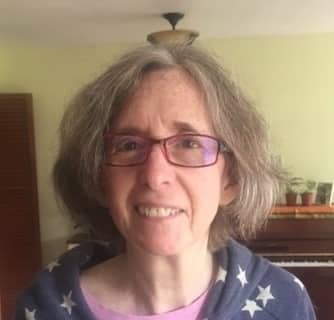
Karen Mandell has taught writing at the high school and college levels and literature at community senior centers. She’s written Clicking, interconnected short stories, and Rose Has a New Walker, a book of poetry, both available on Amazon. She’s working on The Lulu Stories, speculative fiction that takes place in the near future.
~~~~~~~~~~~~~~~~~~~~~~~~~~~
Sarah Sentilles is a writer, teacher, critical theorist, scholar of religion, and author of many books, including Draw Your Weapons, which won the 2018 PEN Award for Creative Nonfiction. Her most recent book, Stranger Care: A Memoir of Loving What Isn’t Ours, is the moving story of what one woman learned from fostering a newborn—about injustice, about making mistakes, about how to better love and protect people beyond our immediate kin. Sarah’s writing is lyrical and powerful and she ventures into spaces that make us uncomfortable as she speaks for the most vulnerable among us. This is a book not to be missed.
Pre-order a copy of Stranger Care to get exclusive free access to a one-hour generative writing workshop with Sarah, via Zoom on May 25th at 7pm Eastern time. If you register for the workshop and can’t attend, a recording of the event will be available. More details here.
~~~~~~~~~~~~~~~~~~~~~~~~~~~
Anti-racist resources, because silence is not an option
~~~~~~~~~~~~~~~~~~~~~~~~~~~

